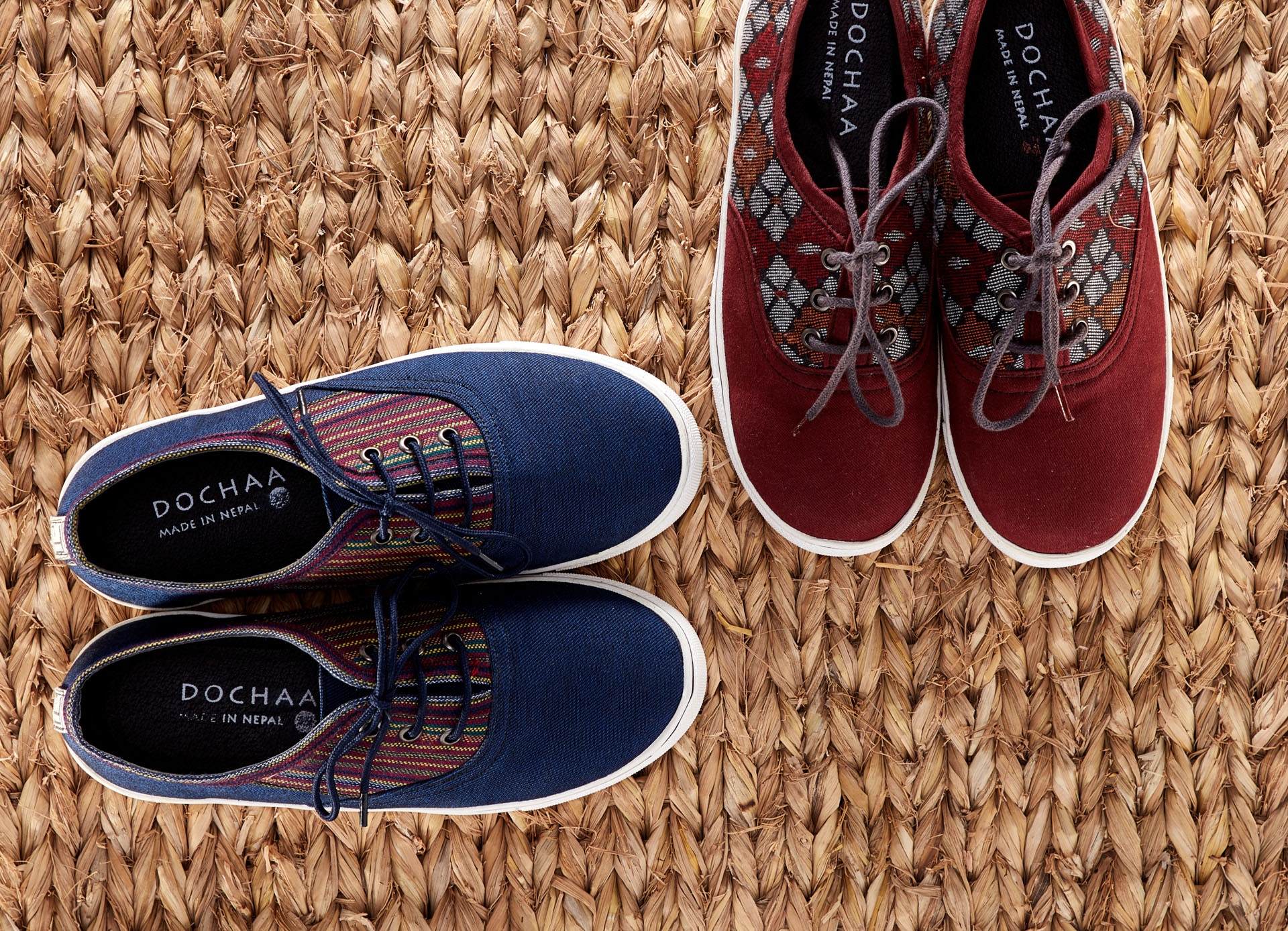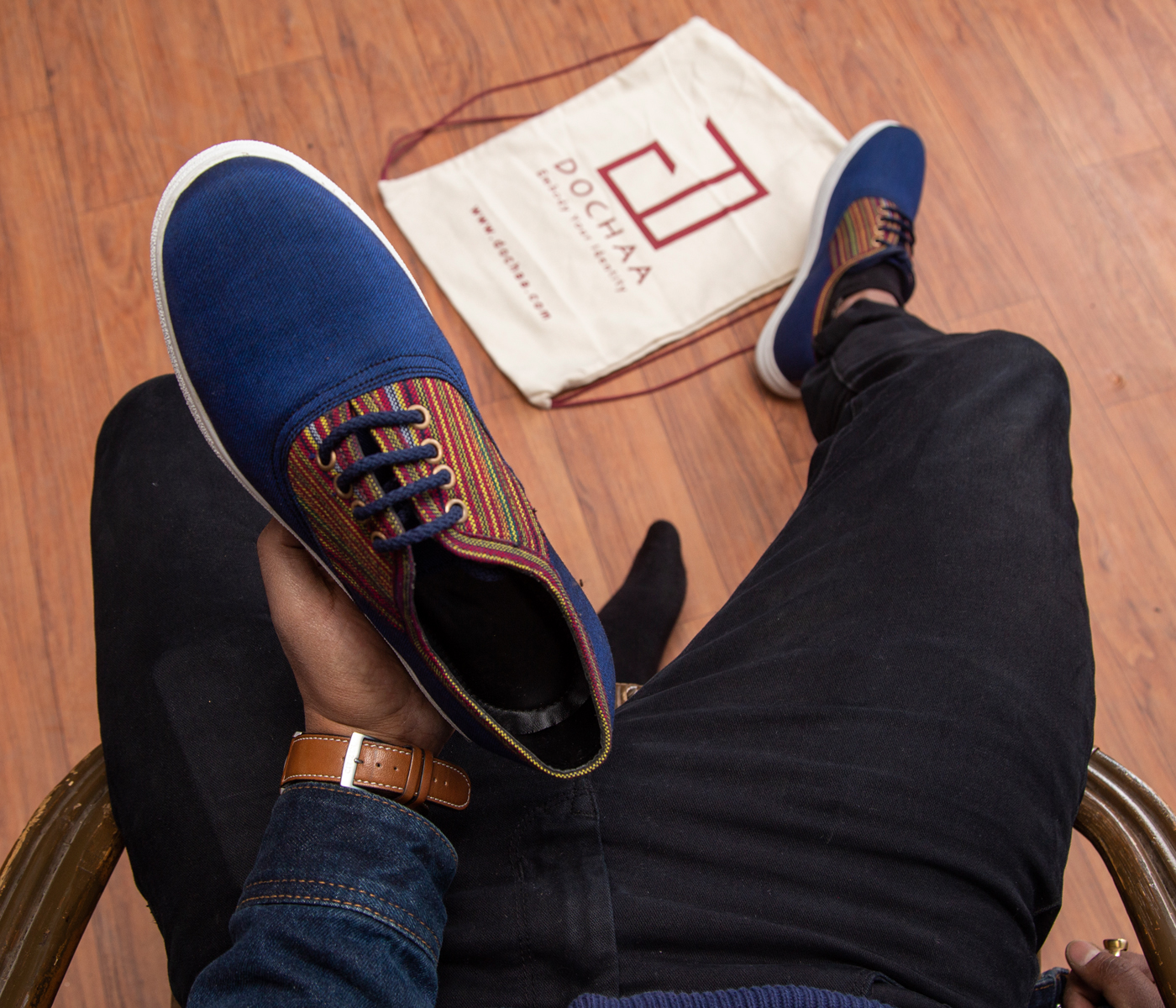Every time Watsal Rajbhandari visited villages across the country, he noticed senior citizens still wearing their traditional attires on an everyday basis, which got him thinking.
“We proudly call dhaka topi, daura Suruwal, and gunyo cholo our national dress, but we rarely wear them,” says Rajbhandari, who, along with Dikesh Prajapati and Amuda Mishra, came up with the idea of bringing back traditional forms of art and expression through modern wears after the 2015 earthquake.
It is said that you make shoe contact before eye contact. As shoe lovers who were fascinated by ethnic artistic expressions through fabrics, the three friends launched Dochaa shoes in 2017. This followed two years of researching the market, products, and fabrics from different cultures and ethnic groups.
Dochaa Nepal started by manufacturing and selling casual shoes and later upscaled to tote bags, purses, masks, and other handcrafted products. Rajbhandari and Prajapati have been actively involved in the brand’s growth.
“Since we started with a hundred pairs of shoes at our launch, we’ve been experimenting with different designs and exploring more ethnic community-specific fabrics that can be included in the designs,” he adds. “Our fabrics make us stand out as they make a unique fashion statement while also preserving our heritage.”
Dochaa promotes modern designs in the form of Sherpas’ pangden fabric, Newars’ lawa, Tamangs’ Shyama, to dhaka fabrics from different cities.

Dochaa supports indigenous communities with the help of different donors and NGOs, and empowers women and people of marginalized communities by procuring their fabrics, training them and providing them jobs in product-manufacturing.
The company recently launched a subsidiary brand called ‘Kewa Handcrafted’ on the occasion of Teej to cater to the hard work of women, and which brings out products for women like sandals, purses, bags and masks.
Dochaa believes in maximum detailing in its designs and provides after-sale services like shoe laundry service, free repairs, and free accessories on occasions. It is one of the few fabric shoe brands that give warranties. Regular feedback for its designs from customers is another of its strengths.
Rajbhandari says, “We have an ever-growing niche of consumers who understand the significance of our products and are interested in the stories they tell”. Among the consumers, there are a handful who know what they are buying at Dochaa, while others are tempted by unique colors and patterns.
“We grew up watching our grandparents wear these fabrics, and with the generation shift comes the desire to change,” Rajbhandari adds. “Maybe that is why Dochaa wants to make a fashion statement that represents all generations.”
Dochaa has already attracted a large number of international consumers and is planning to go to more countries with its products. “Nepali fabrics are admired outside Nepal as it is something new to them, and they want to know more,” he says.
Dochaa plans to put up more stalls and also open a physical store outside Nepal.

It is currently in the process of launching espadrilles footwear using natural jute and hand-loomed ethnic fabric, which will make it the first Nepali manufacturer to do so.
Along with that, for more than two years now, Rajbhandhari and Prajapati have worked on prototyping an artistic edition where they incorporate artisans’ work in their products.
“Every year we watch more and more youths go abroad searching for a better life. I want to encourage people to stay in Nepal and create more employment opportunities here,” Rajbhandari adds. “Dochaa, as a brand, values creating a local platform in order to support our economic growth.”











